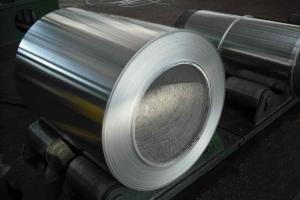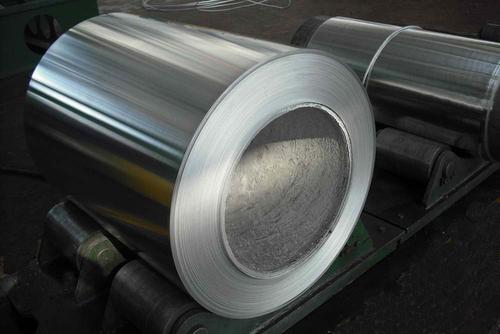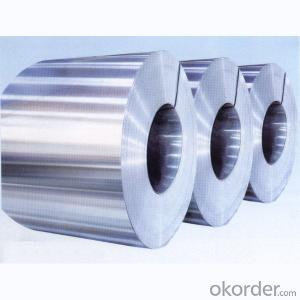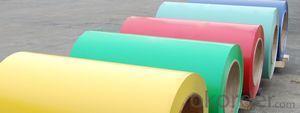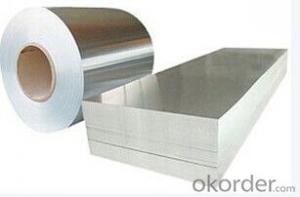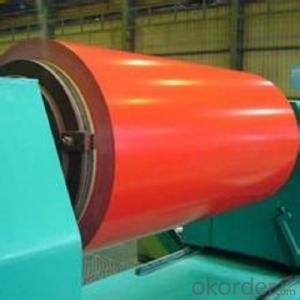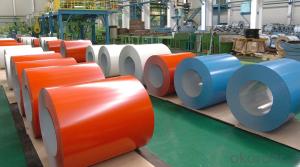Anodized AA1060 Aluminium Coil
- Loading Port:
- China Main Port
- Payment Terms:
- TT OR LC
- Min Order Qty:
- -
- Supply Capability:
- -
OKorder Service Pledge
OKorder Financial Service
You Might Also Like
Specifications
2000 MTS stock with a complete range of specification
aa1060 aluminum sheet coil
Reasonable price, quickly delivery
Specification | Name: 1000 series aluminum coil | |||||||||||
Alloy: 1050, 1060, 1100, 1200 etc. | ||||||||||||
Temper: O, H12, H22, H14, H24, H26, H18 etc. | ||||||||||||
Thickness: 0.2-5mm | ||||||||||||
Width: Up to 1800mm | ||||||||||||
Weight: 5-6 tons per coil | ||||||||||||
Surface treatment: mill finished, anodized, embossed, PVC coated | ||||||||||||
Feature | Price is much more competitive than that of other series. | |||||||||||
Satisfy regular industrial process of stamping, drawing with good elongation, tensile strength and high formability. | ||||||||||||
Great plasticity, corrosion resistance, electrical conductiviy and termal conductivity. | ||||||||||||
Easy to be welded. | ||||||||||||
Easy to be pressure processed, extended and bent. | ||||||||||||
Application | Sign board, Advertising board, Building decoration, Car body, Cooking utensil, Lamp holder, Fan leaf, Electrical part, Chemical instrument, Machined part, Deep-drawn or spinned part, Welded part, Heat exchanger, Clock surface, Decotation, Reflective instrument etc. | |||||||||||
- Q: I don't have a rounded baking tray at the moment and would like to replace it with aluminium foil, do you think it's suitable and that it can withheld the intensity?
- Cheesecake batter is dense. An aluminium tray may not be stiff enough to retain the proposed shape of your cake. Test the pan; load it to the top with water. If it doesn't collapse your cheese cake will not either. You could try using two trays nestled together. You also may need to load the cake and tray on a flat tray when you move it around. Use a thermometer to know when the cake should be pulled. Cook's suggests the top limit at 150 degrees F. Do grease the sides of the pan. Be sure to loosen the cake from the pan side after it is out of the oven. I bake my cakes at 500 degrees F. for ten or twelve minutes, and then to the 150 degree F point at 200 degrees F. Do not open the oven or try to cool it down. Simply dial down the thermostat. If the cake looks too brown cover it with a piece of aluminium foil. Have fun! Avoid cracks...don't overcook the cake!
- Q: Explain the differences between aluminum coil and aluminum sheet in a few sentences.
- <p>Aluminum coil and aluminum sheet are both flat aluminum products but differ in form and usage. Aluminum coil is a long, continuous roll of aluminum that can be easily unrolled and cut to length, making it ideal for manufacturing processes where the material needs to be fed through machines. It is commonly used in industries such as construction, packaging, and automotive for applications like roofing, siding, and food packaging. Aluminum sheet, on the other hand, comes in flat, rectangular pieces with specific dimensions and is typically thicker than coil. It is used in applications where a solid, non-continuous piece is required, such as in signage, furniture, and decorative elements. The thickness and surface finish can also vary between coils and sheets, with sheets often being available in a wider range of finishes and thicknesses.</p>
- Q: How do aluminum coils contribute to sustainable construction?
- Aluminum coils play a significant role in promoting sustainable construction practices due to their numerous environmental benefits. Firstly, aluminum is a highly recyclable material, with nearly 75% of all aluminum ever produced still in use today. This means that aluminum coils can be easily recycled at the end of their lifespan, reducing the demand for new raw materials and minimizing waste sent to landfills. Furthermore, the production process of aluminum coils requires significantly less energy compared to other materials such as steel. Aluminum coils have a low carbon footprint, as the energy consumed during their production is considerably lower, resulting in fewer greenhouse gas emissions. The reduced energy consumption also contributes to lower operating costs for construction projects, making it an economically viable choice. Additionally, aluminum coils are lightweight yet durable, making them an ideal choice for sustainable construction. Their lightweight nature reduces the need for heavy support structures, resulting in reduced material consumption and transportation costs. Moreover, the durability of aluminum coils ensures a longer lifespan, reducing the need for frequent replacement and minimizing waste generation. Aluminum coils also possess excellent corrosion resistance, which is crucial in sustainable construction. This resistance to corrosion means that structures made from aluminum coils require less maintenance and repair over time. Consequently, fewer resources are needed to maintain the integrity of the building, reducing the overall environmental impact. In conclusion, aluminum coils contribute to sustainable construction by being highly recyclable, energy-efficient, lightweight, durable, and corrosion-resistant. By choosing aluminum coils, construction projects can significantly reduce their environmental footprint, conserve resources, and promote a more sustainable built environment.
- Q: Is it possible to use aluminum coils as a material for crafting jewelry?
- <p>Yes, aluminum coils can be used to make jewelry. Aluminum is a lightweight, durable, and affordable metal that is often used in costume jewelry and art pieces. It's easy to work with, allowing for intricate designs and shapes. However, it's important to note that aluminum is not as valuable or as resistant to tarnishing as precious metals like gold or silver, so it may not be suitable for high-end or long-lasting jewelry pieces.</p>
- Q: What are the different types of aluminum coils available?
- There are several types of aluminum coils available, including painted coils, embossed coils, brushed coils, anodized coils, and perforated coils. Each type offers unique characteristics and applications, catering to various industries and aesthetic preferences.
- Q: Are aluminum coils more cost-effective compared to other materials like copper?
- Yes, aluminum coils are generally more cost-effective compared to other materials like copper. There are several reasons for this. Firstly, aluminum is a more abundant metal than copper, which makes it cheaper to produce. This abundance also means that aluminum prices tend to be more stable and less prone to fluctuations in the market, further contributing to its cost-effectiveness. Secondly, aluminum coils have a lower density compared to copper coils, resulting in lighter weight units. This lighter weight not only reduces transportation and installation costs but also makes aluminum coils easier to handle and maneuver during the manufacturing process. Additionally, aluminum coils have excellent thermal conductivity properties, which means they can effectively transfer heat. This allows for more efficient cooling or heating systems, resulting in lower energy consumption and operating costs over time. Moreover, aluminum has a higher resistance to corrosion compared to copper, making it more durable and requiring less maintenance. This increased lifespan of aluminum coils reduces replacement and repair costs, further enhancing their cost-effectiveness. Lastly, aluminum coils are recyclable, and the recycling process requires significantly less energy compared to producing new aluminum. This aspect contributes to the overall sustainability and cost-effectiveness of aluminum coils. Overall, considering the lower production costs, lighter weight, superior thermal conductivity, increased durability, and recyclability, aluminum coils are indeed more cost-effective compared to other materials like copper.
- Q: Is it possible to utilize aluminum coils for the storage of food items?
- <p>Yes, aluminum coils can be used to store foodstuffs, particularly in the form of aluminum foil. Aluminum foil is a common food storage material due to its properties such as being lightweight, flexible, and providing a barrier against air and moisture. It is often used for wrapping food for cooking, freezing, or preserving. However, it's important to ensure that the aluminum does not react with the food, especially acidic foods, as this could lead to contamination. Additionally, it's not recommended for long-term storage as it does not provide a complete seal or barrier against all contaminants.</p>
- Q: Can aluminum coils be used in agricultural applications?
- Aluminum coils are suitable for agricultural applications. They offer numerous benefits for agricultural purposes due to their versatility and lightweight nature. In the agricultural industry, aluminum coils are commonly utilized in greenhouse frames, irrigation systems, and grain storage bins. The resistance to corrosion is one of the key advantages of aluminum coils in agricultural applications. Aluminum is naturally resistant to rust and can withstand exposure to moisture, chemicals, and other elements commonly found in agricultural environments. As a result, it is a durable and long-lasting choice for agricultural equipment that needs to endure harsh conditions. Moreover, aluminum coils have excellent thermal conductivity, allowing them to efficiently transfer heat. This property makes them ideal for heat exchangers, which are frequently used in agricultural machinery like tractors and combine harvesters. Efficient heat transfer helps maintain optimal operating temperatures and enhances overall equipment performance. Additionally, the lightweight nature of aluminum coils makes them easy to handle and transport. This is particularly advantageous in agricultural applications where equipment needs to be frequently moved, such as portable irrigation systems or lightweight structures. The lightweight nature of aluminum also aids in reducing fuel consumption in machinery, leading to cost savings and environmental benefits. Furthermore, aluminum is a non-toxic material, ensuring its safety in agricultural applications. It does not release any harmful chemicals or leach into the soil, thus keeping crops uncontaminated and safe for consumption. In conclusion, aluminum coils are a reliable and efficient choice for various agricultural equipment and structures. Their corrosion resistance, thermal conductivity, lightweight nature, and non-toxic properties contribute to increased productivity and sustainability in the agricultural industry.
- Q: Are aluminum coils suitable for electrical transformer applications?
- Yes, aluminum coils are suitable for electrical transformer applications. Aluminum coils have several advantages over traditional copper coils in transformer applications. Firstly, aluminum is a lightweight metal, which makes it easier to handle and transport. This can be particularly advantageous for large transformers where weight reduction is desired. The lightweight nature of aluminum coils also allows for easier installation and maintenance. Secondly, aluminum has excellent electrical conductivity, although it is not as conductive as copper. However, aluminum coils can compensate for the lower conductivity by using larger wire sizes or increasing the number of turns. This ensures that the transformer still operates efficiently and effectively. Additionally, aluminum has a higher thermal conductivity compared to copper. This means that aluminum coils can dissipate heat more efficiently, which is crucial for the proper functioning and longevity of transformers. The increased heat dissipation helps in reducing the operating temperature of the transformer, thereby improving its overall performance. Furthermore, aluminum is a cost-effective alternative to copper. Aluminum is generally less expensive than copper, making it a more budget-friendly option for transformer manufacturers. This cost advantage can be significant, especially in large-scale transformer production. However, it is important to note that there are some considerations to be aware of when using aluminum coils in transformer applications. Aluminum coils are more prone to oxidation and require proper insulation to prevent corrosion. Additionally, aluminum coils may have slightly higher electrical losses compared to copper coils, although advancements in design and manufacturing techniques have minimized this issue. In conclusion, aluminum coils are indeed suitable for electrical transformer applications. They offer advantages such as lightweight construction, excellent electrical conductivity, superior thermal conductivity, and cost-effectiveness. However, proper insulation and preventive measures should be taken to address any potential challenges associated with aluminum coils, ensuring optimal performance and durability of the transformers.
- Q: Are aluminum coils suitable for beverage can manufacturing?
- Yes, aluminum coils are suitable for beverage can manufacturing. Aluminum is a preferred material for beverage cans due to its various advantageous properties. Firstly, aluminum is lightweight, which makes it easy to transport and handle. This is particularly important for the beverage industry, where large quantities of cans are produced and distributed. Additionally, aluminum is highly malleable, allowing it to be formed into the desired shape without losing its structural integrity. This makes it ideal for can manufacturing, as it can be easily shaped into a can's cylindrical form and withstand the pressure from carbonated beverages. Moreover, aluminum is a non-toxic material, ensuring that it does not contaminate the beverages stored in the cans. It also provides a barrier against light, oxygen, and moisture, which helps to preserve the taste and quality of the beverages. Furthermore, aluminum is recyclable, making it an environmentally friendly choice for can manufacturing. The recycling process for aluminum requires significantly less energy compared to producing new aluminum, making it a sustainable material option. Overall, the suitability of aluminum coils for beverage can manufacturing is evident due to its lightweight nature, malleability, non-toxicity, preservation properties, and recyclability.
Send your message to us
Anodized AA1060 Aluminium Coil
- Loading Port:
- China Main Port
- Payment Terms:
- TT OR LC
- Min Order Qty:
- -
- Supply Capability:
- -
OKorder Service Pledge
OKorder Financial Service
Similar products
Hot products
Hot Searches
Related keywords
